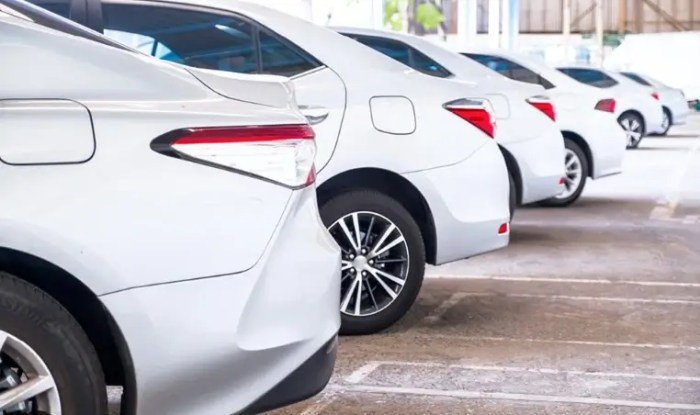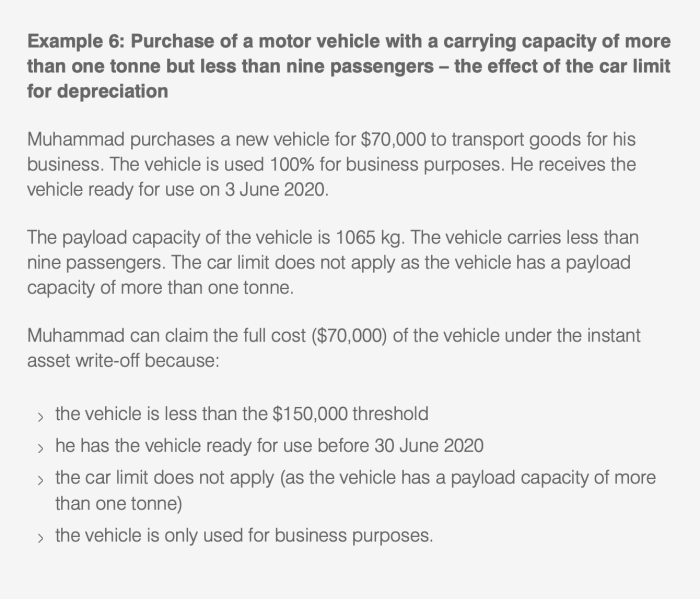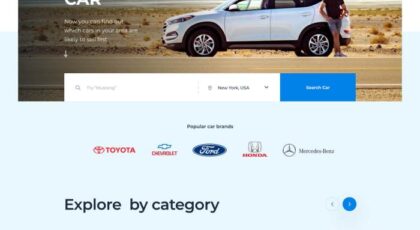How do I buy a car from Enterprise? This question, seemingly simple, opens a door to a surprisingly diverse world of used car purchasing. From understanding the differences between a standard used car and a certified pre-owned vehicle, to navigating financing options and post-purchase maintenance, the journey to owning an Enterprise vehicle is filled with choices and considerations.
This guide will equip you with the knowledge and strategies to make an informed decision, ensuring a smooth and successful car-buying experience. We’ll walk you through every step, from browsing their online inventory to driving off the lot in your new-to-you ride.
Enterprise offers a unique approach to the used car market, often presenting vehicles in excellent condition at competitive prices. However, like any major purchase, careful planning and research are essential. This guide delves into the specifics of buying from Enterprise, comparing it to traditional dealerships and private sellers, and providing you with the tools to negotiate the best possible deal.
We'll cover everything from pre-purchase checklists to understanding warranties, empowering you to make a confident and satisfying car purchase.
Understanding Enterprise Car Sales
Enterprise Car Sales offers a diverse range of used vehicles, providing a convenient alternative to traditional dealerships and private sellers. Understanding the differences between their offerings and navigating their sales process is key to a successful purchase.
Used Cars versus Certified Pre-Owned Cars
Enterprise offers both used cars and certified pre-owned (CPO) vehicles. Used cars are generally sold "as is," with no warranty beyond any remaining manufacturer's warranty. CPO vehicles, however, undergo a rigorous inspection process and often come with an extended warranty, providing greater peace of mind. The price difference reflects this added assurance and protection.
The Enterprise Vehicle Selection Process
The vehicle selection process at an Enterprise car sales location typically begins with browsing their online inventory. Once you've identified potential vehicles, you can schedule an appointment to view them in person. Sales representatives are available to answer questions, provide test drives, and guide you through the purchasing process. The process emphasizes transparency and a straightforward approach to buying a used car.
Locating a Vehicle on the Enterprise Website
Finding a vehicle on the Enterprise website is straightforward. The website usually features a robust search function allowing you to filter by criteria such as make, model, year, price range, mileage, and location. You can refine your search further by specifying features and other preferences. Once you find a suitable vehicle, you can view detailed information, including photos, vehicle history reports (if available), and specifications.
Enterprise Financing Options
Enterprise often partners with various financial institutions to offer a range of financing options. These options cater to different credit profiles and financial situations. Understanding the terms and conditions of each option is crucial before making a decision.
| Financing Option | Interest Rate | Loan Term | Requirements |
|---|---|---|---|
| Enterprise Financing | Varies based on credit score | Typically 24-72 months | Credit check, income verification |
| Third-Party Lender | Varies based on lender and credit score | Flexible loan terms | Credit check, income verification, potentially higher down payment |
| Cash Purchase | N/A | N/A | Full payment at time of purchase |
| Lease (if available) | Varies | Typically 24-36 months | Credit check, income verification, security deposit |
Locating and Selecting a Vehicle: How Do I Buy A Car From Enterprise
Finding the best deal and making an informed decision requires careful consideration of several factors. Knowing what to look for and how to compare vehicles will improve your chances of securing a great deal.
Tips for Finding the Best Deal
To secure the best deal, compare prices across multiple vehicles and locations. Negotiate the price, considering the vehicle's condition, mileage, and features. Consider purchasing during off-peak seasons or taking advantage of any sales or promotions Enterprise might offer. Thoroughly review the vehicle history report to identify any potential issues.
Comparing Vehicle Features
Enterprise offers a wide variety of vehicles, each with unique features. Comparing vehicles based on factors like fuel efficiency, safety features, technology, and passenger capacity is essential. Consider your individual needs and preferences to select a vehicle that best suits your lifestyle.
The Importance of Vehicle History Reports
A vehicle history report provides valuable insights into a vehicle's past, including accident history, maintenance records, and title information. Reviewing this report before purchasing helps identify potential problems and ensures transparency in the buying process. This is a crucial step to avoid unexpected repairs or hidden issues.
Pre-Visit Checklist
Before visiting an Enterprise location, prepare a checklist to ensure a smooth and efficient experience. This should include pre-qualifying for financing, researching vehicles of interest, and having your identification and necessary documents ready.
- Pre-qualify for financing.
- Research vehicles and shortlist options.
- Gather necessary documents (ID, insurance information).
- Confirm vehicle availability.
- Plan your transportation to the dealership.
The Purchase Process
The purchase process at Enterprise typically involves several steps, from completing the paperwork to securing financing and finalizing the transaction. Understanding this process ensures a smooth and efficient experience.
Purchase Paperwork
The paperwork involved includes the sales contract, financing documents (if applicable), and title transfer paperwork. Carefully review all documents before signing to understand the terms and conditions. This includes understanding any warranties, payment schedules, and other relevant details.
Payment Options

Source: technoanalyzer.com
Enterprise generally accepts various payment methods, including cash, certified checks, and financing through their partners or third-party lenders. Choosing the most suitable payment option depends on your financial situation and preferences. Explore the available options to determine the most convenient and cost-effective method.
Completing the Purchase Transaction
The purchase transaction usually involves a final inspection of the vehicle, signing of all necessary documents, and payment processing. Once the payment is processed, the title and registration will be transferred to your name. Enterprise will guide you through this process to ensure a seamless transition.
Securing Financing, How do i buy a car from enterprise
Securing financing can be done through Enterprise's network of lenders or through a third-party lender. Comparing interest rates and loan terms from different lenders is crucial to finding the best deal. Pre-qualification is recommended to streamline the process and have a clear understanding of your financing options before visiting the dealership.
Post-Purchase Considerations
After purchasing a vehicle from Enterprise, several essential steps ensure a positive ownership experience. Regular maintenance and understanding your warranty are key to maximizing the lifespan and value of your vehicle.
Essential Post-Purchase Checks
After purchasing your vehicle, thoroughly inspect it for any damage or discrepancies not noted before. Ensure all features are functioning correctly. Immediately report any issues to Enterprise to initiate the warranty process if necessary. Confirm insurance coverage and registration details.
Understanding Your Vehicle Warranty
Carefully review your vehicle's warranty documentation. Understand the coverage, duration, and any limitations. Keep records of all maintenance and repairs to ensure compliance with warranty terms. Contact Enterprise or the warranty provider if any issues arise during the warranty period.
Vehicle Maintenance

Source: incrediblemagazines.com
Regular maintenance is crucial for extending the lifespan of your vehicle. Follow the recommended maintenance schedule provided in your owner's manual. This includes regular oil changes, tire rotations, and other necessary services. Keeping up-to-date maintenance records can prove beneficial when selling or trading in your vehicle.
Common Maintenance Schedules and Costs
| Maintenance Item | Frequency | Estimated Cost | Notes |
|---|---|---|---|
| Oil Change | Every 3,000-5,000 miles | $50-$100 | Varies based on oil type and vehicle |
| Tire Rotation | Every 5,000-7,000 miles | $20-$40 | May be included in some oil change packages |
| Brake Inspection | Every 6 months or 6,000 miles | $50-$100 | Includes brake pad replacement if needed |
| Fluid Checks | Every 3,000 miles | Included in most services | Check coolant, brake fluid, transmission fluid, etc. |
Comparing Enterprise to Other Dealers
Choosing between Enterprise, traditional dealerships, and private sellers depends on individual priorities and circumstances. Each option offers unique advantages and disadvantages.
Enterprise vs. Traditional Dealerships
Enterprise often offers a more streamlined and less pressured buying experience compared to traditional dealerships. While selection might be more limited, the process is often quicker and simpler. Traditional dealerships offer a wider selection but may involve more negotiation and a potentially more intense sales experience.
Enterprise vs. Private Sellers
Buying from Enterprise provides more security and transparency compared to private sellers. Enterprise offers warranties and financing options, which are often absent in private sales. Private sales may offer lower prices but come with higher risks and less buyer protection.
Enterprise vs. Leasing
Buying from Enterprise offers ownership and long-term value, whereas leasing provides lower monthly payments but no ownership at the end of the lease term. The best option depends on your financial goals and driving habits. Consider the total cost of ownership versus the total cost of leasing when making your decision.
Pros and Cons of Buying from Enterprise

Source: squarespace-cdn.com
- Pros: Convenient location, streamlined process, often competitive pricing, financing options, warranty options on CPO vehicles.
- Cons: Selection may be more limited compared to traditional dealerships, less opportunity for negotiation in some cases.
Illustrative Examples
Real-life scenarios can illustrate the process and potential pitfalls of buying a used car from Enterprise.
Successful Car Purchase
Imagine Sarah, needing a reliable compact car. She browses Enterprise's online inventory, finds a certified pre-owned Honda Civic matching her criteria. She pre-qualifies for financing, schedules a test drive, and is satisfied with the vehicle's condition and history report. She negotiates a fair price, secures financing, completes the paperwork, and drives away with her new car, enjoying the extended warranty provided with the CPO vehicle.
Unsuccessful Car Purchase and Avoidance
John, in a rush, buys a used car without thoroughly inspecting it or reviewing the vehicle history report. He later discovers significant mechanical issues not disclosed by Enterprise. He could have avoided this by taking his time, carefully reviewing the vehicle, and obtaining a vehicle history report before purchase. Thorough inspection and due diligence are crucial.
Enterprise Vehicle Packages
Enterprise might offer various vehicle packages. For example, a "Value Package" could include a basic used car with a limited warranty, while a "Premium Package" could include a CPO vehicle with an extended warranty, additional features, and possibly some maintenance coverage. The descriptions clearly Artikel the inclusions and exclusions of each package.
Interpreting a Vehicle History Report
A vehicle history report might show a clean history, indicating no accidents or major repairs. Conversely, it could show previous accidents, indicating potential structural or mechanical damage. Understanding the report's details, such as accident severity and repair details, is crucial for making an informed decision. Pay close attention to any discrepancies between the report and the vehicle's condition.
Outcome Summary
Buying a used car, whether from Enterprise or another source, is a significant decision. This guide has aimed to demystify the process of purchasing a vehicle from Enterprise, providing you with a clear understanding of the steps involved, the options available, and the potential pitfalls to avoid. Remember, thorough research, careful consideration of your needs and budget, and a proactive approach to the negotiation process are key to a successful outcome.
By following the advice and strategies Artikeld here, you can confidently navigate the car-buying journey and secure a reliable vehicle that meets your expectations. Drive safely, and happy motoring!
Detailed FAQs
What is Enterprise's return policy on purchased vehicles?
Enterprise typically doesn't offer a return policy on purchased vehicles similar to a retail store. Thorough inspection before purchase is crucial.
Can I test drive a car before buying it from Enterprise?
Yes, test drives are generally available at Enterprise car sales locations. Schedule one in advance.
Does Enterprise offer extended warranties?
They may offer extended warranties or protection plans; inquire directly at the time of purchase.
What types of payment methods does Enterprise accept?
Enterprise typically accepts cash, checks, and financing through their approved lenders. Confirm options at your chosen location.
How long does the entire purchase process usually take at Enterprise?
The process varies, but expect to spend several hours completing paperwork and finalizing the sale. Allow ample time.


